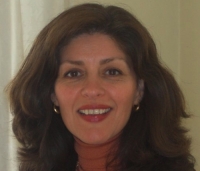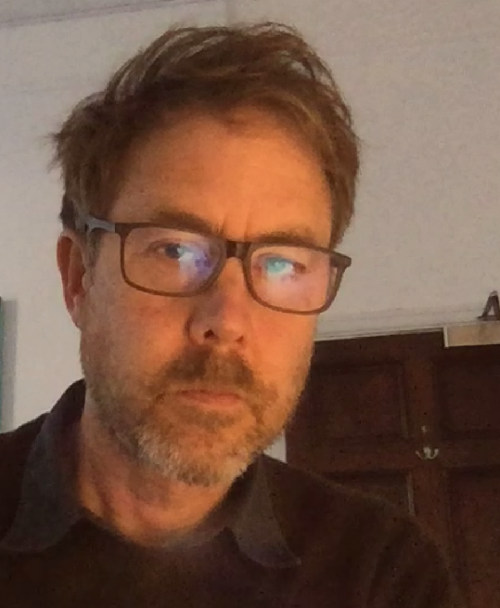Singh, R. and Sim, T. (2021) Families in the time of the Pandemic: Breakdown or Breakthrough? Australian and New Zealand Journal of Family Therapy, https://doi.org/10.1002/anzf.1445.
Borcsa, M., Lebow J.L., Singh, R., Larner, G. and Messent, P. (2020) Publication in Family Therapy Journals: Family Process, Journal of Family Therapy, and Australian and New Zealand Journal of Family Therapy – A Discussion with Editors. In Ochs, M., Borcsa, M. & Schweitzer, J. (Eds.). Systemic Research in Individual, Couple and Family Therapy and Counseling (EFTA Book Series, Volume 4). pp.17-430, Cham, CH: Springer International.
Rastogi, M. and Singh, R. (2020) Preface. Systemic Family Therapy and Global Health Issues. The Handbook of Systemic Family Therapy. Volume 4. London: Wiley.
Reibstein, J. and Singh, R. (2020) The Intercultural Exeter Couples Model. Making Connections for a Divided World through Systemic-Behavioural Therapy. Wiley: Oxford.
Robinson, D. and Singh, R. (2020) ‘Forced Marriage as a Representation of a Belief System in the UK and its Psychological Impact on Well-being’. In Majors, R., Carberry, K. and Ransaw, T. (Eds). The International Handbook of Black Community Mental Health, pp.489-505. Emerald Publishing: UK.
Singh, R. (2020) ‘Home is where the heart is: Aporias of love and belonging in intercultural couples’, pp.145-157 in A. Abela, S. Vell and S. Piscopo, Couple Relationships in the 21st Century, New York: Springer.
Singh, R., Killian, K., Bhugun, D. and Tseng, C. (2020). ‘Clinical Work with Intercultural Couples’ pp.155-183 in K. Wampler and A. Blow (ed.) Handbook of Family Therapy, Volume 3. Wiley: Oxford.
Wampler, K.S, Rastogi, M. and Singh, R. (2020) The Handbook of Systemic Family Therapy. Volume 4. Systemic Family Therapy and Global Health Issues. Wiley: Oxford.
Singh, R. (2019) ‘Working systemically with family violence’. pp.113-124 in S. Sonpar and N. Kanwar (Eds) Surviving on the Edge. Psychosocial Perspectives on Violence and Prejudice in India. New Delhi: Sage.
Reibstein, J. and Singh, R. (2018) The Intercultural Exeter Model. Psychotherapy Review. Special section on Couples and Families, pp. 56-71.
Singh, R. (2017) ‘Do we need to change the way we measure change? Developments in SCORE -15’. Journal of Family Therapy 39 (1), pp. 1-3.
Singh, R. (2017) ‘Intimate Strangers: working with interfaith couples’. Australian and New Zealand Journal of Family Therapy. Special issue on Spirituality. Australian and New Zealand Journal of Family Therapy. 38(1), pp.7-14.
Singh, R. (2017) ‘Valedictory Editorial’. Journal of Family Therapy 39(4) pp.495-497.
Singh, R. and Dada, M. (2017) ‘On the frontline: intercultural couples in a divided world’. Discover Society. May 02. https://www.palgrave.com/de/book/9783319596976
Sim, T., Yi Yang, X., Chan, S., Loy, J.T.C, Sng, S., Lo, R., Chao, W. and Singh, R. (2017) ‘Co-constructing family therapy in the Asian Chinese family diasporas of mainland China, Malaysia, Macau, Singapore and Taiwan’. Journal of Family Therapy. Special issue. 39(2) pp.131-150
Singh, R. (2016) ‘Couples and transgenerational relationships: cultural considerations and connundra’, Journal of Family Therapy, 38(3), pp.301-301.
Singh, R. (2016) ‘The stories we tell: Systemic thinking in a divided world’. Editorial, Journal of Family Therapy, 38(4), pp. 405-466
Singh, R. (2015) A journal in time. Past, present and future themes. Journal of Family Therapy, 37 (4): 407-408.
Singh, R. (2015) Reflections on Practice. Enduring Love? Couple Relationships in the 21st Century. Clinical Implications. Feedback. Journal of the Family Therapy Association of Ireland, (pp. 70 -79).
Singh, R. (2015) Systemic innovators, past and present. Editorial. Journal of Family Therapy 37 (3), pp. 265 -266.






